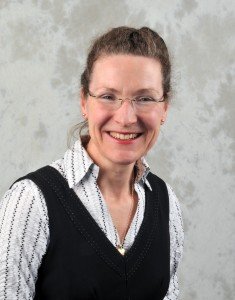Graphic: The future of work is changing
In her second graphic for SHP, Helen Beers explains how the future of work is changing, including increasing globalised workforce, zero-hours contracts and a decrease in manual work and life-time careers.
Based on horizon scanning research carried out by the Foresight Centre at HSE’s Health and Safety Laboratory (HSL), evolving technology is boosting jobs in knowledge intensive sectors, whilst contributing to the decline of manual work (traditionally hard, mundane and potentially dangerous jobs).
Advances in technology are contributing to changes in the nature of work and it is anticipated that people will no longer have a career for life, based in one physical workplace. More tasks will be automated, the workforce will become globalised, and working patterns will become more flexible (e.g. workers will be more likely to be hired on temporary contracts and to work as contractors or freelancers).
The decline in manual work may mean a reduction in some occupational safety and health (OSH) risks to workers in the future. However, this in turn may lead to an increase in less physically active working roles which have their own potential OSH implications. An expert statement (The sedentary office: a growing case for change) commissioned by Public Health England and published in March 2015, suggested that workers who sit for long periods are more prone to chronic diseases such as cancer, diabetes, high blood pressure and cardiovascular disease.
In the context of globalisation and the changing world of work, job insecurity and work intensification appear to be major OSH risk factors in many European countries.

 Dr Helen Beers joined HSL in 2009 with responsibility for leading HSL’s social research work. She is currently the Technical Team Lead within HSL’s Foresight Centre, where her work focuses on demographics and ageing. Helen has a PhD in Health Psychology and prior to joining HSL worked within the health, education and finance sectors.
Dr Helen Beers joined HSL in 2009 with responsibility for leading HSL’s social research work. She is currently the Technical Team Lead within HSL’s Foresight Centre, where her work focuses on demographics and ageing. Helen has a PhD in Health Psychology and prior to joining HSL worked within the health, education and finance sectors.
Graphic: The future of work is changing
In her second graphic for SHP, Helen Beers explains how the future of work is changing, including increasing globalised workforce,
Safety & Health Practitioner
SHP - Health and Safety News, Legislation, PPE, CPD and Resources Related Topics
Navigating the future: EHS workforce and training in a new era of tech
Webinar: Wellbeing, remote working, commuting – where are the limits?
Time tracking is not the answer to motivate remote workers, experts say


 Dr Helen Beers joined HSL in 2009 with responsibility for leading HSL’s social research work. She is currently the Technical Team Lead within HSL’s Foresight Centre, where her work focuses on demographics and ageing. Helen has a PhD in Health Psychology and prior to joining HSL worked within the health, education and finance sectors.
Dr Helen Beers joined HSL in 2009 with responsibility for leading HSL’s social research work. She is currently the Technical Team Lead within HSL’s Foresight Centre, where her work focuses on demographics and ageing. Helen has a PhD in Health Psychology and prior to joining HSL worked within the health, education and finance sectors.